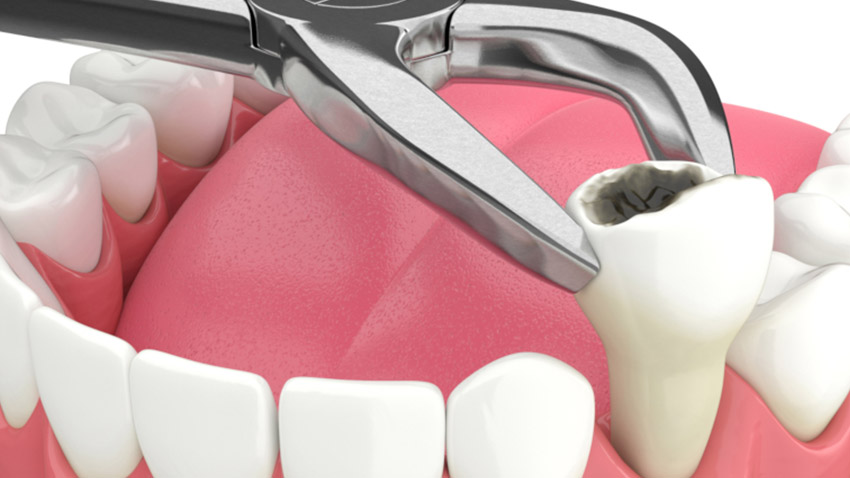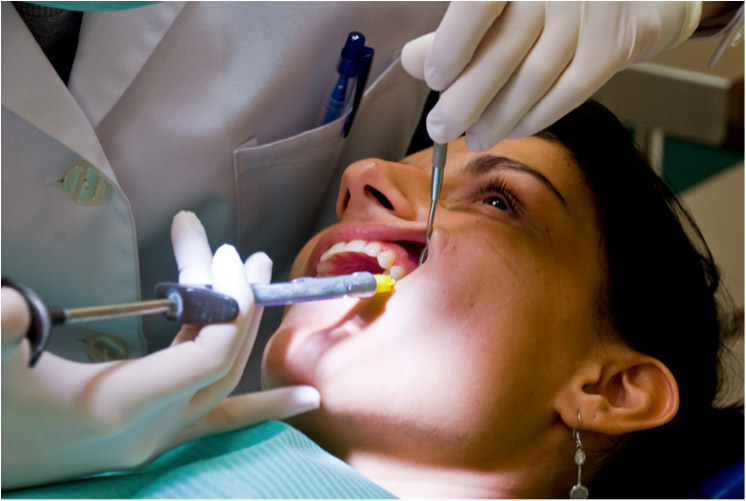
Tooth Extraction Service
North Delhi Dental Clinic
Teeth or wisdom tooth are extracted by a oral and maxillofacial surgeon or a specialized dentist for reasons such as deep tooth decay, infection to bone surrounding the tooth, crowding.
Contact us for Tooth Extraction Service.
Tooth Extraction Service in North Delhi at Our Clinic
When antiseptics and antibiotics cannot treat dental problems, tooth extractions might be recommended. If your tooth is broken, damaged by plaque or if there is an extra tooth blocking the main tooth from coming out, you might need an extraction.
We at our clinic based in North Delhi extracts tooth very carefully and are performed by our experienced oral surgeon in a safe and sterile environment with modern monitoring equipments.
Expert Painless Tooth Extraction Service by our experts
When we hear the word “tooth extraction” it always comes at an impression of painful and terrifying. But as a matter of fact it’s painless and hassle-free that should bring ease to your aches and woes.
Post treatment care for wisdom tooth extraction
Before tooth removal your dentist will review and understand your medical and dental history and dental X-rays are taken which reveal the length, position and shape of tooth and bone. He may refer you to a oral surgeon if it is a complicated case. It is critical to maintain good oral hygiene and eat soft foods for the first few days after your dental surgery.
Relax after surgery and do not lie flat. Use pillows to prop up your head. Gently massage with an ice pack regularly over the swelling.
Bleeding should stop within 24 hours (It may take more time if wisdom tooth has been extracted). If the bleeding continues even after 24 hours, visit your dentist immediately. If bleeding has stopped after 24 hours, you can gargle with warm salt water to reduce the swelling.
Take care not bite into your cheek or tongue as your mouth will be numb after the procedure.
Do not eat hard food until it is completely healed.
Avoid smoking or using straw to drink or often touching the area as it can slow down the healing process.
Brush gently without rubbing too hard on the teeth or the gums.

Frequently Asked Questions
Before the dental extraction procedure itself, your dentist or oral surgeon will give you local anesthetic to numb the area of the tooth for pulling. If your pain tolerance is low or if some instances require, your dentist may use a strong anesthetic to prevent pain throughout your body. Surgical extractions would require more time and procedure than simple extractions. Once the tooth is pulled, your dentist will place a gauze pad on the area to stop the bleeding. If needed, self-dissolving stitches will also be placed on the socket to close the gum edges on the extraction site.
Before scheduling any surgical procedure, your dentist will take an X-ray of your tooth to get a full view of the case. You must inform your dentist for any medications you are taking including over-the-counter drugs, supplements, or even vitamins. You should speak to him/her if you have certain medical conditions such as congenital heart disease, hypertension, diabetes, etc. This is important to make sure your health is stable before the tooth removal procedure.
The healing period after a dental extraction usually takes about one to two weeks, where a new bone and gum tissue will grow into the gap. When the healing is complete, the remaining teeth can shift because of the gap. To keep your bite aligned, your dentist may recommend replacing the missing tooth with an implant or fixed bridge.
After your painless tooth extraction procedure, you need to give extra care for yourself so you can recover faster. Here are some tips you must consider:
Bleeding or swelling is expected after the procedure. Bite down on the gauze pad given by your dentist for a few minutes until the bleeding stops.
Limit your talking, eating or drinking especially on the first 2 hours after the extraction.
To alleviate the pain after the anesthesia wears off, take pain-reliever or other medications prescribed by your dentist.
Ice packs can also be applied to numb the painful area.
Should you start eating, start with soft foods that do not require much chewing.
Do not use straws, smoke, spit or any action that requires force in your mouth.
When you brush your teeth, avoid the extraction site. Alternatively, you can rinse your mouth with ¼ teaspoon of table salt in a glass of lukewarm water.
WE MAINTAIN PROPER ASEPSIS. ALL STERILISATION AND SANITATION MAINTAINED
